The online community management space has come a long way, but the Community Manager role still has the widest variation in responsibilities, compensation and reporting level.
Community Managers in the Organization
Community managers in our research work predominantly for corporations vs. agencies or as independents — suggesting that organizations see the value in investing in community management for the long haul. Community managers often work with communities scattered around the globe, giving them the opportunity to work remotely — a benefit that accrues to both internal and external community managers.
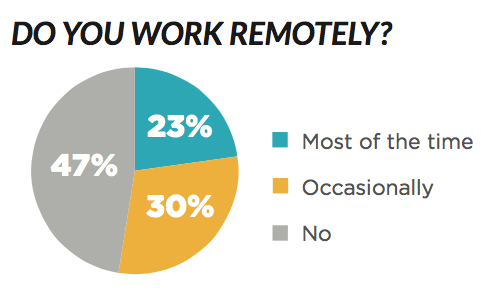
Community managers typically report to someone at the director level, with only about a third reporting to a vice president or higher. Despite the manager title, most community managers don’t manage anyone. Only about a third have direct reports, either employees or volunteers.
Community Manager Skills and Training Needs
Community managers’ top five most valued skills get to the heart of the tactical day-to-day monitoring and management of communities. Their most desired areas for training suggest an interest in digging deeper to drive engagement and understand what specific elements lead to community success. These training needs also suggest an opportunity for community professionals to develop into community specialists such as Community Architects, Community Analysts, and Community Strategists.
Highest Valued Skills of a Community Manager
- Community Strategy Development
- Community Advocacy And Promotion
- Listening And Analyzing
- Writing
- Measurement, Benchmarking, And Reporting
Biggest Community Manager Training Needs
- Gamification And Behavior Change
- Data Collection And Analysis
- Community Advocacy And Promotion
- Ux And Design
- Community Strategy And Development
Community Manager Performance Evaluation
While community metrics are part of the evaluation of a community manager’s performance, the voice of the community is rarely part of the process. Just 5% of community managers say a review from the community is part of their performance evaluation — versus 91% who say they receive a manager assessment and 72% who submit a self-assessment.
Explore the Community Skills Framework:
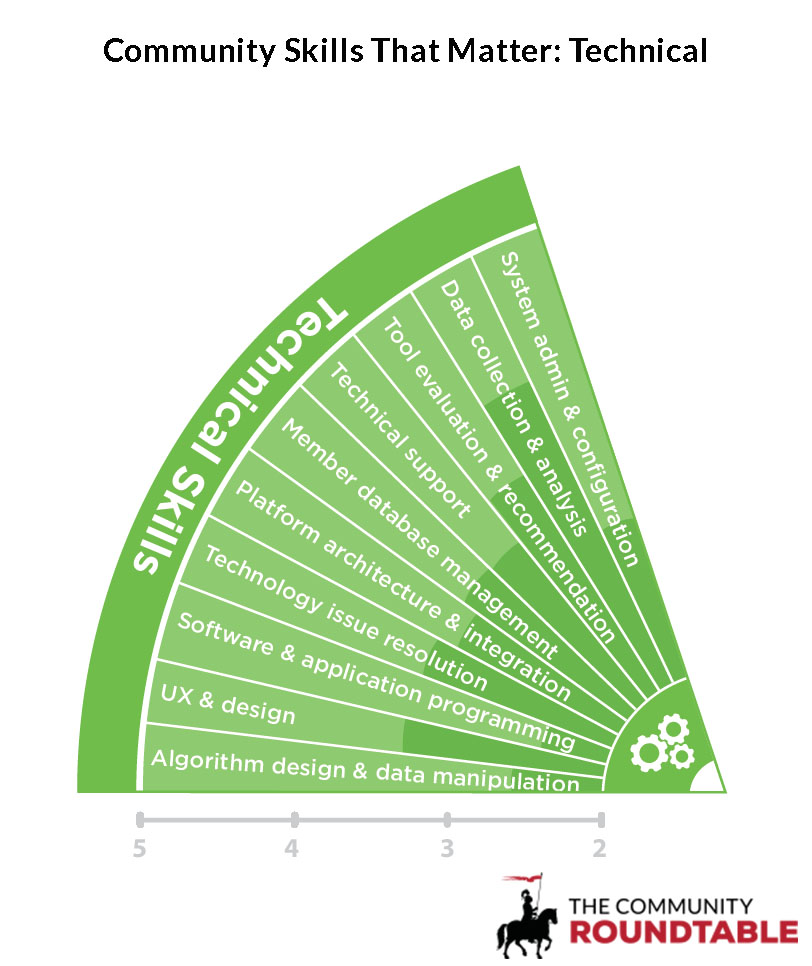 |
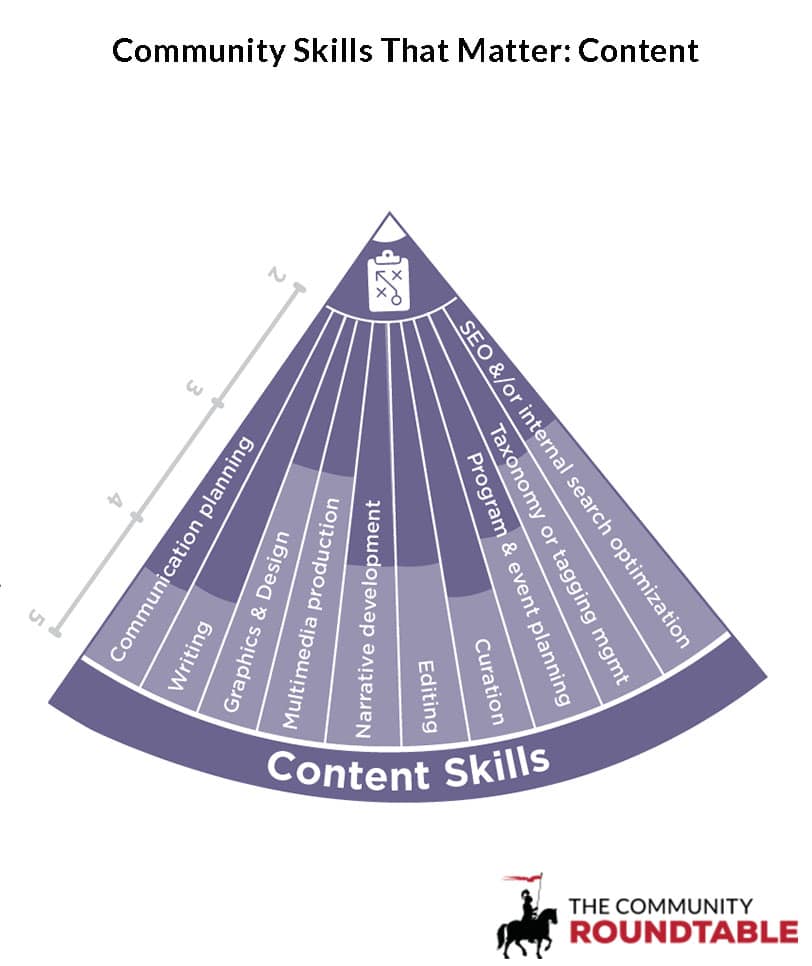 |
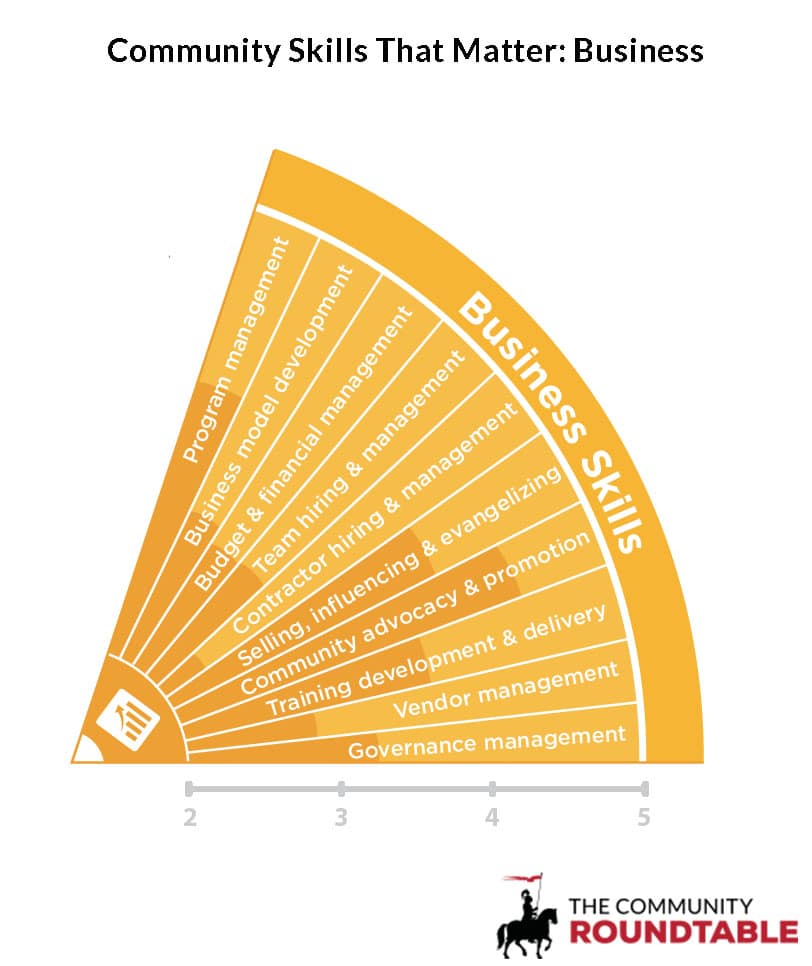 |
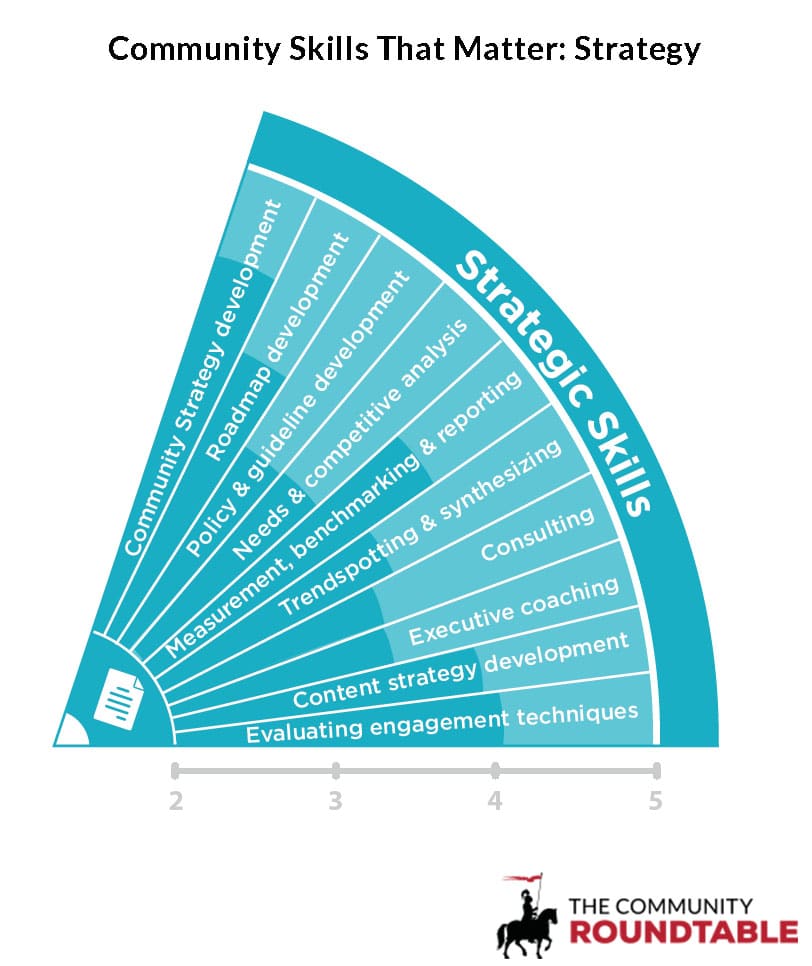 |
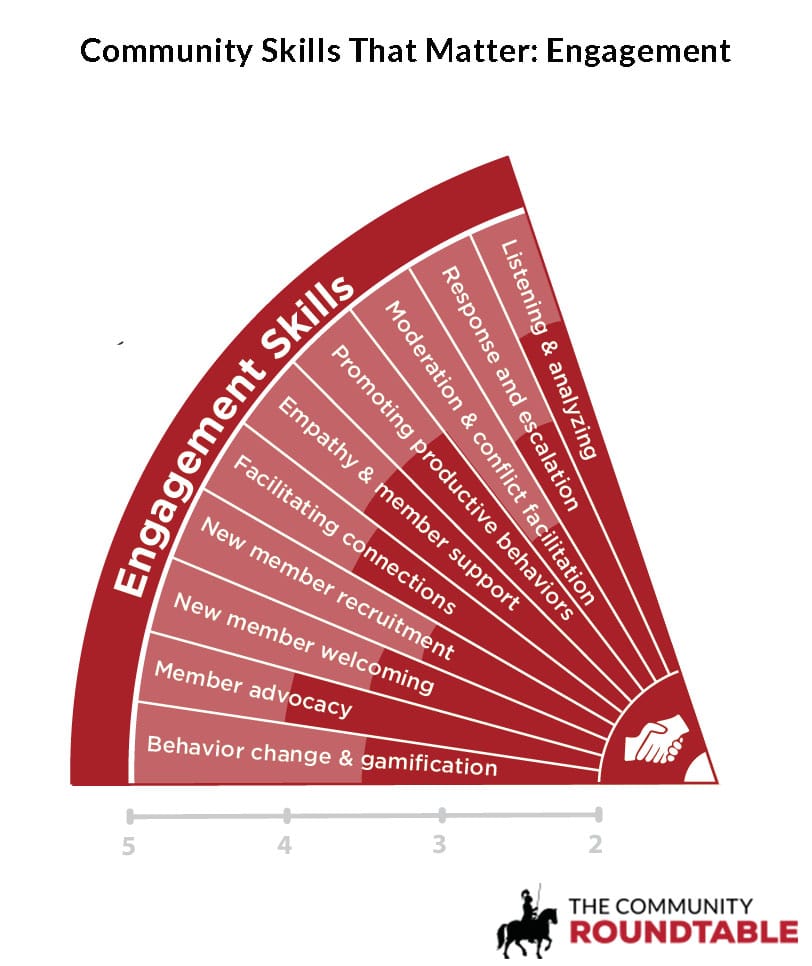 |
